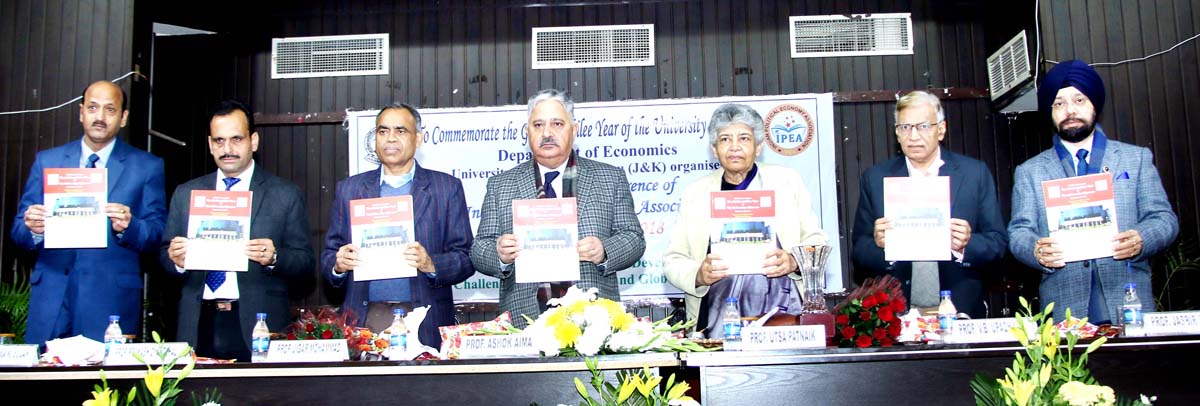
Excelsior Correspondent
JAMMU, Dec 14: The 22nd Annual Conference of the Indian Political Economy Association, hosted by the Department of Economics, University of Jammu as part of the University’s Golden Jubilee Celebrations, commenced here today.
In the inaugural ceremony, Prof Ashok Aima, Vice-Chancellor, Central University of Jammu, was the chief guest while Prof Jigar Mohammad, Dean Research Studies, University of Jammu was the guest of honour.
The keynote speaker Professor Utsa Patnaik, Professor Emerita in the Centre for Economic Studies and Planning, Jawaharlal Nehru University, drew parallels between what happened to India under colonial rule and under the current policies of globalisation and liberalisation.
He explained the manner in which India was drained of her wealth by Britain by way of taxes which then were used to pay for Britain’s imports from India. He claimed that the same is being replicated by the richer countries this time through a set of policies that India has adopted after 1991, that is, liberalisation and globalisation.
Click here to Watch Video
“The lowering of State investment has led to low demand and low domestic incomes while liberalisation and globalisation has made the farmers vulnerable to global instability. This was accentuated by the gradual phase out of Government procurement. The resulting farmers’ distress has led to the rise in farmers movements as well as Dalit movements which are now being supported by the middle class,” Prof Patnaik said and called for a rollback of the policies that have come into place after 1991 and also stressed for greater State intervention in the economy.
Prior to this, Prof V B Upadhyay of IIT Delhi and a functionary of the Indian Political Economy Association, explained to the audience about the aims, goals and orientation of the Association.
Prof Jasbir Singh of the Department of Economics and the Convener of the Seminar delivered the welcome address.
Prof Prakash Anthal, HoD Economics proposed the vote of thanks.
The first day saw eight technical sessions with approximately 40 papers being read. The areas covered included water management issues, climate change, foreign policy, public investment, relevance of Marxian analysis and thought etc.
The day concluded with a plenary session devoted to the discussion on “Political Economy of Emerging Political, Development and Ecological Challenges at the National and Global Levels”, the theme of the conference.

